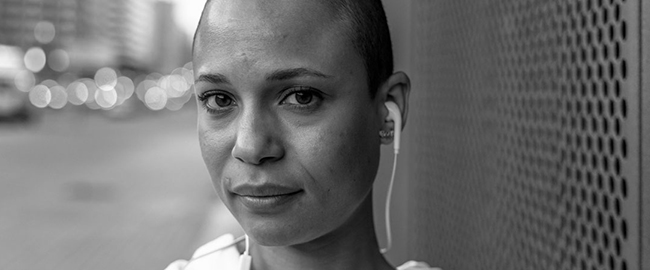Neuromodulation Services (ECT)
Neuromodulation ECT Treatment in New Jersey Offers a Ray of Hope
We have been a pioneer in providing this safe, effective and medically- proven treatment option offering hope and improvement for individuals with “treatment resistant” mental and behavioral health conditions.
For more than fifty years, Carrier Clinic® has provided this well-researched treatment at our location in Somerset county. New Jersey. Carrier Clinic is the largest and most experienced provider of ECT services on the East Coast.
We offer inpatient and outpatient services at our hospital-based locations in Belle Meade, Neptune and Perth Amboy in New Jersey. Our expert teams utilize Carrier Clinic best practices and the most modern technology in the safest, medically-supervised environment.
Caroline’s Story: How ECT Saved my Life
For 15 years after a mental health diagnosis in her early teens, Caroline’s condition proved resistant to medications to manage and improve her condition. Caroline lost hope and had suicidal thoughts, until ECT was suggested. Soon after starting ECT at Carrier Clinic, her condition improved in ways she did not believe were possible and reclaimed her life.
ECT could be an option to discuss with your physician or mental health professional if your condition is prolonged and has not responded to medications or other therapies.
These conditions may include medically diagnosed “Treatment Resistant” depression, psychosis, Bipolar Disorder, Schizophrenia and a wide range of psychiatric disorders. ECT can improve the quality of life for individuals with severe forms of Autism, Catatonia or other chemical imbalances.
If you, or someone you know has been diagnosed with a treatment resistant mental health condition, please don’t hesitate to discuss ECT with your physician to determine if it may be an option for you.
252 County Road 601
Belle Mead, NJ 08502
1-800-933-3579
ECT Services at Jersey Shore University Medical Center
1945 Route 33
Neptune, NJ 07753
732-643-4407
ECT Services at Raritan Bay Medical Center
530 New Brunswick Avenue
Perth Amboy, NJ 08801
732-324-5339
Electroconvulsive Therapy (ECT) Frequently Asked Questions
ECT is a biological treatment where a controlled amount of electrical charge is administered to the front part of the brain that helps certain kinds of psychiatric illness. Extensive research has shown that ECT gives safe, effective, and rapid relief of symptoms for 80%-95% of selected patients.
As patients are unconscious or asleep during ECT, nothing is felt during the procedure and is as safe as any other procedure administered under general anesthesia. In certain situations, it is safer than taking psychotropic substances for mental illnesses. After ECT, patients may experience some side effects including headache, muscle ache, drowsiness, confusion, or nausea. These side effects may last up to a few hours after the treatment but are not cause for alarm or concern.
There is no evidence that Electroconvulsive Therapy causes brain damage. Many people do report some confusion and memory problems after Electroconvulsive Therapy. Research has shown that this is a side effect for some people, but it is usually limited to events shortly before, during, and a short time after treatment. There is no evidence of any permanent change in overall memory ability, and you will not forget the important people, facts, or values in your life.
ECT treatment is for patients for whom more traditional options like medications have not worked. It is sometimes considered as the first choice of treatment in cases involving severe psychotic depression, malnutrition, and pregnancy.
Treatment is most commonly prescribed for severe depression, where symptoms include:
- Altered appetite with weight changes
- Changes in sleep patterns
- Decreased interest in things that once gave you pleasure
- Feelings of guilt
- Feelings of hopelessness and/or helplessness
- Increased worrying
- Low energy
- Poor concentration
- Sad, blue, low mood
- Thoughts of death or suicide
The doctor will make this decision based on individual needs and patient response. However, the ECT treatment program usually consists of six to 12 treatments, given up to three times a week. This stimulates the brain to correct imbalances in the brain centers that are responsible for sleep, appetite, mood, and thought processes. The attending psychiatrist monitors patient response and mood to determine the exact number of treatments best suited for each individual. Maintenance therapy is also available to help prevent another episode of depression for patients who experience recurring symptoms.






